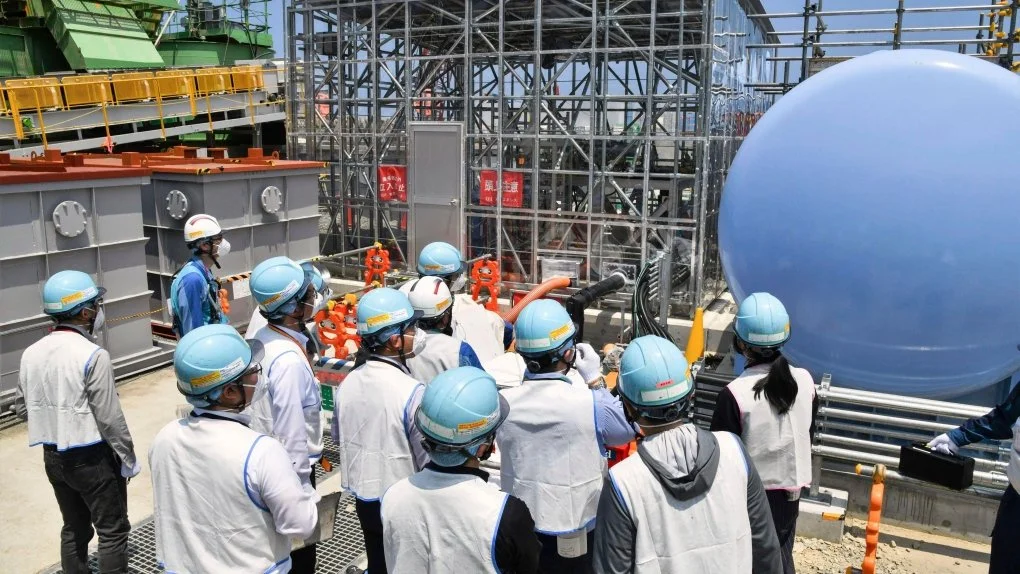The International Atomic Energy Agency and experts from China, South Korea and Canada on Monday collected seawater samples near the crippled Fukushima nuclear complex in northeastern Japan following the release of treated radioactive water from the site, the Japanese government said. The team is visiting Japan through Oct. 23 to corroborate the country's marine monitoring amid safety concerns over the water release, which began late August. China has sharply reacted to the discharge by imposing a blanket ban on Japanese seafood imports. In addition to seawater, the team will collect samples of seabed sediment and fish and compare the levels of tritium and other radioactive substances from those taken last year, according to Japan's Nuclear Regulation Authority.
South Korea Asks Japan for Role in Fukushima Water Monitoring
South Korean President Yoon Suk Yeol wants experts from his own country to help monitor Japan’s release of treated water from the Fukushima nuclear disaster site. Yoon requested participation in a discussion with Japanese Prime Minister Fumio Kishida on the sidelines of the NATO summit in Lithuania on Wednesday, according to a statement from South Korea’s presidential office.
UN nuclear agency chief to visit Fukushima plant to see final preparations for release of wastewater
The chief of the UN nuclear agency will visit Japan next week to meet with Japanese leaders and see final preparations for the release of treated radioactive wastewater from the damaged Fukushima nuclear plant into the Pacific Ocean, officials said Friday. Japan's government hopes the visit by International Atomic Energy Agency head Rafael Mariano Grossi will add credibility to the discharge plan. It has been strongly opposed by local fishing groups and by neighbouring South Korea, China and some Pacific Island nations over safety concerns.
Koreans protest Fukushima water release
Members of civic groups shout slogans during a rally calling for South Korea and the U.S. to express their objection to the Japanese government's decision to release treated radioactive water from the Fukushima Daiichi nuclear power plant, in Seoul, South Korea. The signs read "We oppose the release of treated radioactive water from Fukushima."
Japan estimates Fukushima water release to start in 'spring or summer'
The Japanese government gave an estimation for when the water from the destroyed Fukushima nuclear power plant will be released into the sea, saying at a cabinet meeting held on Friday it could happen sometime "around this spring or summer." In April 2021, the government approved the release of more than 1 million tonnes of irradiated water from the site after treatment into the ocean. It said the release would happen "in about two years" at the time.
Japan maps out action plan for disposal of Fukushima water
Japan's government on Tuesday mapped out a plan for releasing contaminated water from the crippled Fukushima nuclear plant into the sea, including compensation standards for local industry and the compilation of a safety assessment report. Japan said in April it would discharge more than 1 million tonnes of contaminated water in stages after treatment and dilution, starting around spring 2023. The announcement provoked concerns from local fishermen and objections from neighbouring China and South Korea.
Japan to start releasing treated radioactive water from Fukushima nuclear plant into sea in 2 years
Japan's government announced Tuesday it would start releasing treated radioactive water from the wrecked Fukushima nuclear plant into the Pacific Ocean in two years, a move fiercely opposed by fishermen, residents and Japan's neighbours. The decision, delayed for years because of safety worries and protests, came during a meeting of cabinet ministers who endorsed the ocean release as the best option.








